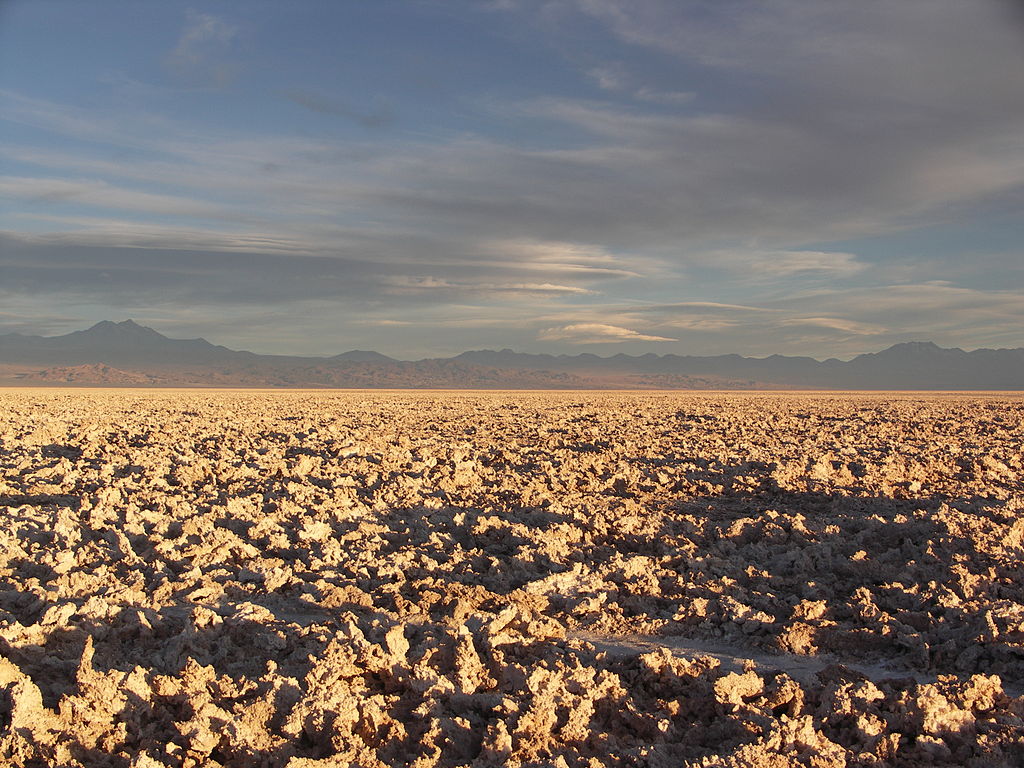Tesla may be interested in building a lithium factory in Chile together with local manufacturer, Sociedad Química y Minera de Chile SQM. This was announced yesterday by the executive vice president of the Chilean Production Development Corporation (Corfo), Eduardo Bitran, in a few statements given to the Financial Times, some of which were also published in Spanish on Corfo's twitter account.
While talks still at an early stage (and neither SQM nor Tesla have issued any statements on the matter), according to Bitran, Tesla is interested in producing lithium hydroxide directly from the brine that lies beneath the Chilean desert of Atacama, without the carbonate of lithium as an intermediate step.
“Tesla could also bring a partner to manufacture battery cathodes in the country, because Chile has one of the cheapest solar energy sources in the world,” Bitran added.
It is interesting to note, however, that the interest of the U.S. company arrives after SQM and Corfo reached an agreement on a controversial dispute, which concluded in an arbitration, on the Salar de Atacama, where SQM is operating and which is the world's largest and purest active source of lithium.
Moreover, several local media have reported that Bitran traveled to the U.S. to meet with senior Tesla officials before the agreement between SQM and Corfo was reached in mid-January.
The entities have been in dispute since 2014 over issues concerning back taxes, environmental compliance and water rights. In essence, the agreement imposes new rules for the mining company, which must change the structure of its corporate governance. Among other changes, Julio Ponce, the current president of the company and controlling shareholder, must leave his position.
The amount of rental income has also been increased to match those of the North American Albemarle (the other company that operates the Salar de Atacama), but SQM has increased its lithium extraction quota by almost 350 thousand tons until 2030.
The agreement also establishes the supervision of compliance with environmental contracts and regulations (since SQM has opened a sanctioning process with the Superintendency of the Environment, in which there are three major infringements), and the reserve option of 25% of lithium production to be sold in Chile.
Several social organizations have expressed their opposition to the agreement between SQM and Corfo to exploit lithium until 2030 in the Salar de Atacama, and a demonstration that took place last Monday ended with several arrests. “You cannot do business with a company that has transgressed all the canons of ethics,” said the national coordinator of The Lithium Movement for Chile, Miguel Soto. Against this, Bitrán said, “We have recovered the lithium for Chileans.”
According to Reuters, if an agreement is finalized, Corfo would be willing to negotiate an increase in the production quota of SQM.
This content is protected by copyright and may not be reused. If you want to cooperate with us and would like to reuse some of our content, please contact: editors@pv-magazine.com.



By submitting this form you agree to pv magazine using your data for the purposes of publishing your comment.
Your personal data will only be disclosed or otherwise transmitted to third parties for the purposes of spam filtering or if this is necessary for technical maintenance of the website. Any other transfer to third parties will not take place unless this is justified on the basis of applicable data protection regulations or if pv magazine is legally obliged to do so.
You may revoke this consent at any time with effect for the future, in which case your personal data will be deleted immediately. Otherwise, your data will be deleted if pv magazine has processed your request or the purpose of data storage is fulfilled.
Further information on data privacy can be found in our Data Protection Policy.